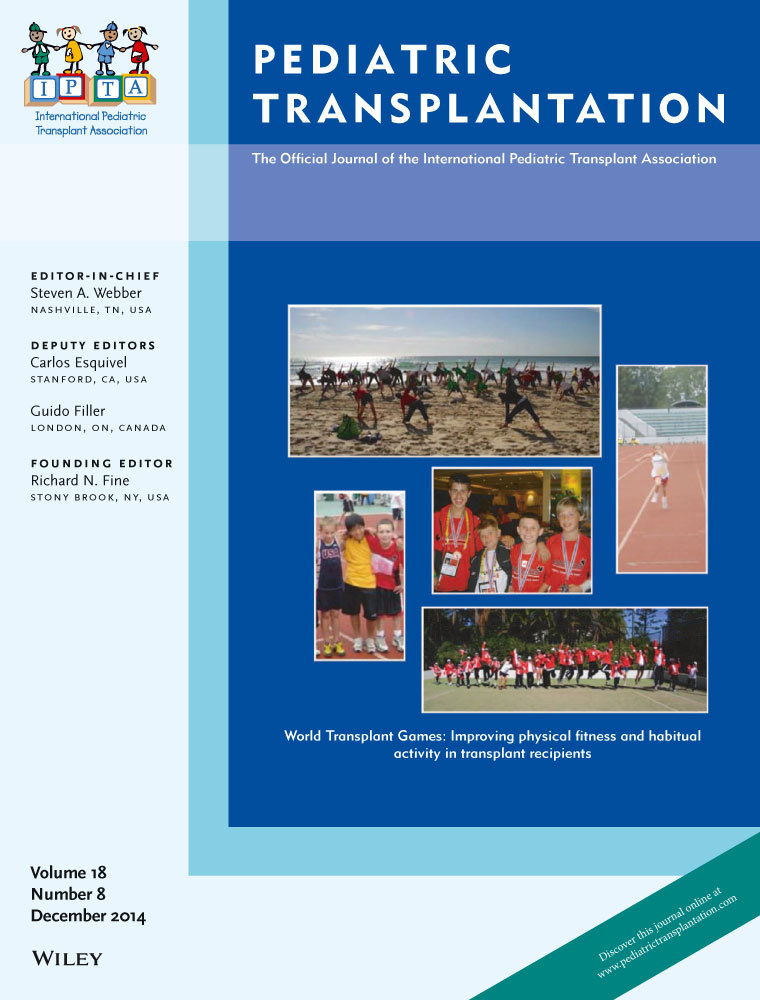Surgical consultation and intervention during pediatric hematopoietic stem cell transplantation
Abstract
Children undergoing HSCT are at risk for complications due to immune system impairment, toxicity from prior therapies and conditioning regimens, and long-term use of indwelling catheters. These problems may require assessment by the surgical team. We sought to characterize the role of surgical consultation during primary hospital stay for HSCT. We retrospectively reviewed the records of consecutive patients undergoing HSCT between September 2010 and September 2012. One hundred and seventy-three patients underwent 189 HSCTs. General surgery consultations occurred during 33% (n = 62) of primary hospitalizations for HSCT, with a total of 85 consults. Sixty-three (73%) consults resulted in an intervention in the operating room or at the bedside. The majority of consults were for CVL issues (59%, n = 50), followed by abdominal complaints (16%, n = 14). Patients requiring surgical consultation had significantly higher in-hospital mortality (16% vs. 2%, p < 0.01) and 100-day TRM (10% vs. 2%, p < 0.01), compared with those not requiring consultation. Patients undergoing HSCT often require surgical consultation, most commonly for line-related issues. Surgical consultation heralded an increased risk of in-hospital and 100-day TRM. Issues among this high-risk cohort of children who have undergone HSCT must be familiar to the general surgeon and oncologist alike.




